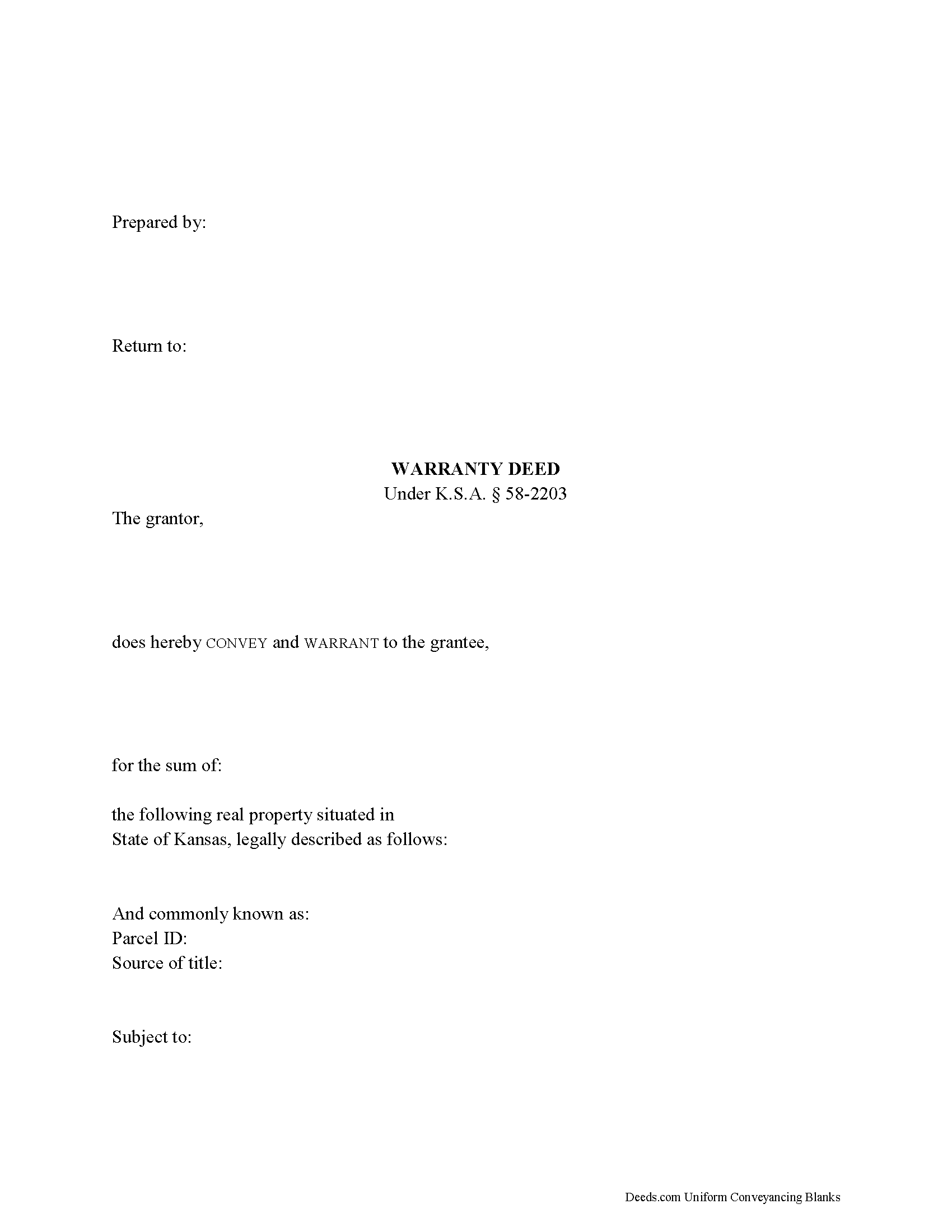Download Kansas Warranty Deed Legal Forms

Kansas Warranty Deed Overview

A warranty deed is a legal document used to transfer, or convey, rights in real property from a grantor (seller) to a grantee (buyer). The statutory language for a warranty deed provided in K.S.A. 58-2203 protects the grantee by confirming that the grantor holds clear title to the real estate, has the right to sell the property to the grantee, and he or she will warrant the title against all persons whomsoever. This guarantee extends throughout the property's history. The grantor also warrants that they did not encumber the property in a way prohibiting transfer, and that the deed references all easements, restrictions, or other agreements of record that relate to the specific parcel of land.
A lawful warranty deed includes the grantor's full name and marital status, as well as the grantee's full name, marital status, mailing address, and vesting. Vesting describes how the grantee holds title to the property. For Kansas residential property, the primary methods for holding title in co-ownership are tenancy in common and joint tenancy. A grant of ownership of real estate to two or more persons is presumed to create a tenancy in common, unless otherwise stated (K.S.A. 58-501). As with any conveyance of real estate, a warranty deed requires a complete legal description of the parcel. Recite the source of title to establish a clear chain of title, and detail any restrictions associated with the property.
Finally, the deed form must meet all state and local standards for recorded documents. Once it is signed by the grantor, it must be acknowledged and recorded as directed by K.S.A. 58-2205.
Include all relevant documents, affidavits, forms, and fees with the along with the deed for recording. Complete a Real Estate Sales Validation Questionnaire for the deed, unless it meets one of the exemptions provided in K.S.A. 79-1437e. Confirm necessary materials and fees with the local recording office.
This article is provided for informational purposes only and is not a substitute for legal advice. Contact an attorney with questions about warranty deeds or any other issues related to the transfer of real property.
(Kansas Warranty Deed Package includes form, guidelines, and completed example)